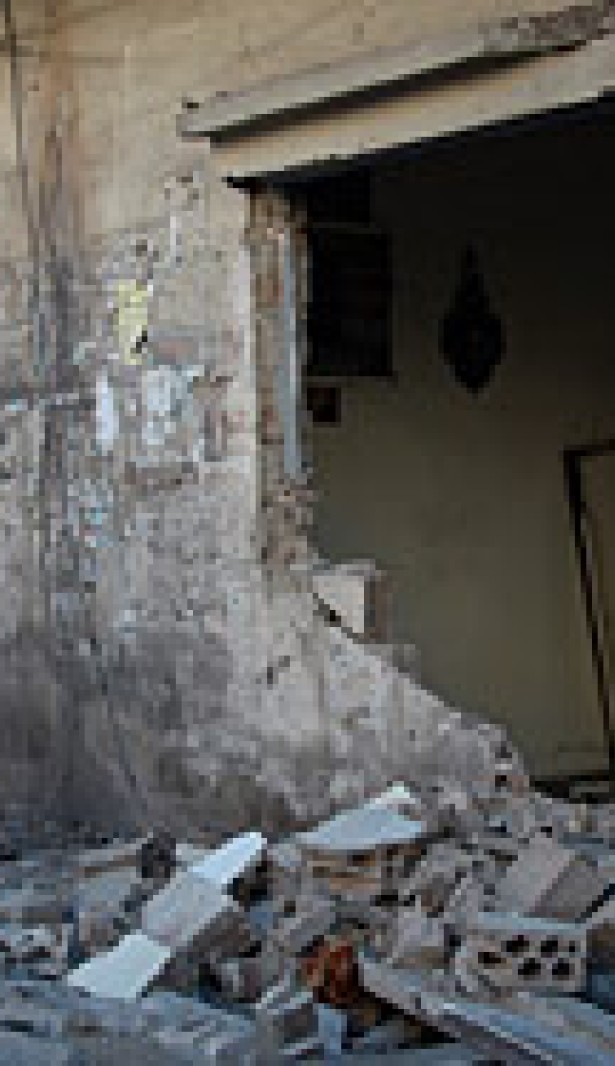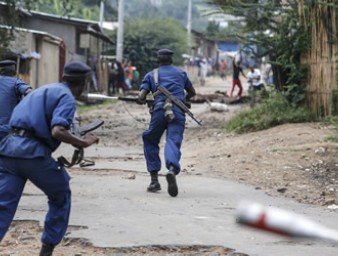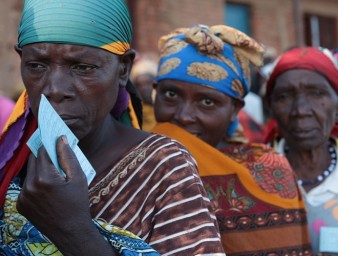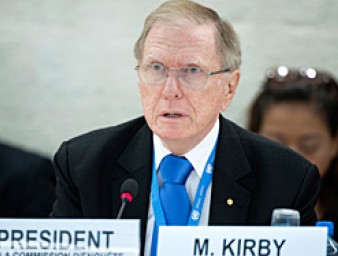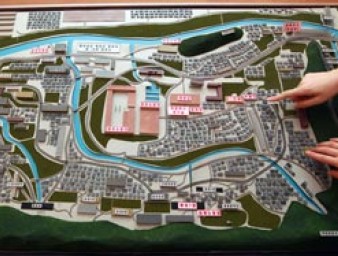Open wounds: torture and ill-treatment in Syria
28 May 2014
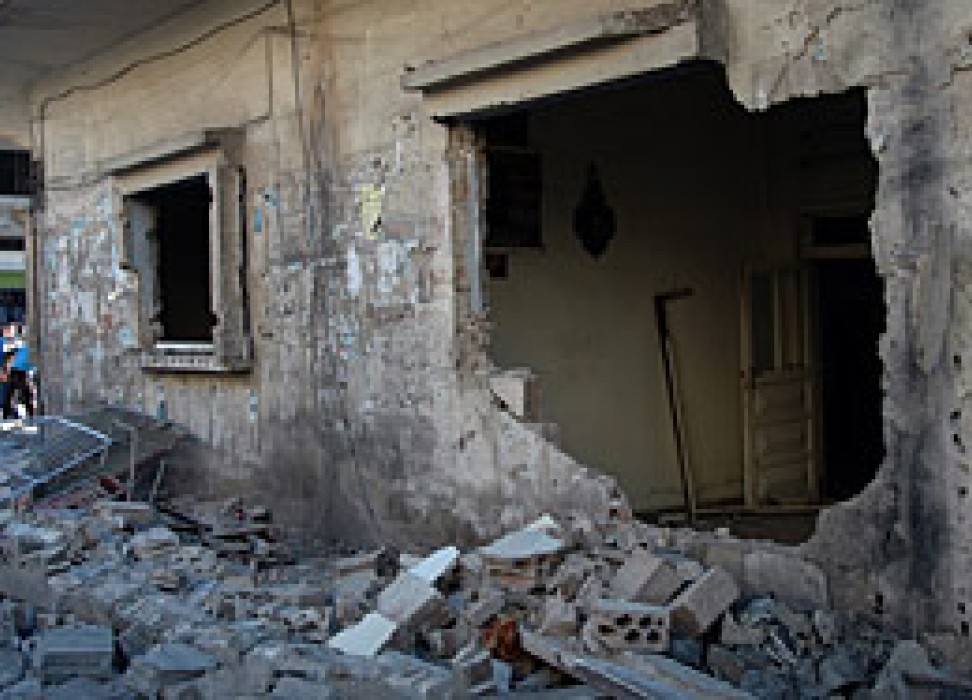
“They called us prostitutes and spat on our faces…I was hanged against a wall for three days, and frequently beaten with an electric cable. I used to pass out from the pain,” recounts WA, a 26-year-old Syrian woman. She was arrested along with several other women and for more than two weeks she faced torture, including sexual violence, while being held by security forces.
After they released WA, she was forced to run away when her family rejected her after learning she had been raped.
This story is drawn from one of the 38 interviews conducted by the UN Human Rights Office with individuals who were released from detention facilities throughout the Syrian Arab Republic and who have come forward to share their horrifying experiences. Their stories are included in a thematic paper, “Open wounds: torture and ill-treatment in Syria”, produced by the Office creating vivid images of the suffering of victims of torture and ill-treatment by the Syrian Government and by some opposition groups.
Detainees are held in centres across Syria, often “beyond the protection of the law and with no access to the outside world”, the paper says.
According to the paper, torture and ill-treatment by Government forces have been consistently reported over many years in Syria, including prior to the conflict. The Fact-Finding Mission led by the UN Human Rights Office and the Independent International Commission of Inquiry on the Syrian Arab Republic (the Commission) have both concluded that the large scale practice of torture and other inhuman acts perpetrated by Government forces and its militias since the outbreak of the conflict may amount to crimes against humanity.
Men, women and children of all ages have been picked up from the street, in their homes and at work or arrested at Government checkpoints in order to be transferred to one of the dozens of official or secret Government-run facilities, which are also found in army barracks and airports.
Once they arrive at a detention facility, detainees are repeatedly beaten and humiliated for several hours by guards, also referred to as the “reception party”. Testimonies attested to the use of torture and ill-treatment in order to extract confessions about participation in protests and support for opposition groups.
AA, a 30-year-old male university student, was arrested with a group of other students, following a peaceful anti-government protest in Hama. He said that members of the Air Force Intelligence tortured him during his daily interrogation sessions.
This lasted over a month in the Deir Shmayel detention center.
Sometimes they would hang me against the wall from my cuffed hands—with my back against the wall—and one guard would pull out my beard in batches with his hands,” he says.
Despite the challenges of documenting allegations of torture and ill-treatment by armed opposition groups, OHCHR was able to establish that several of them were running detention centres frequently located in hospitals, schools and other public buildings.
Reports of torture and other ill-treatment by armed opposition groups were relatively rare at the start of the conflict, however, the OHCHR paper observes that, as of 2013, the number of these incidents appears to be increasing. Reporting to the Human Rights Council in February 2014, the Commission said several non-state armed groups were involved in torture and ill-treatment and it found that “widespread detention of civilians and their systematic torture by identified armed groups amounted to a crime against humanity” in Al-Raqqa, a city in north central Syria.
Activists, particularly those trying to document human rights abuses, and medical personnel thought to be affiliated with other opposition groups face an elevated risk from some armed groups. Others have been targeted based on their religion or ethnicity, the paper says. There have been reports that children have also been subjected to torture and ill-treatment by these groups.
This account is from GA, an activist held in detention by one of the armed opposition groups: “I was repeatedly arrested… in July and August 2013 and taken to one of their bases in Al-Raqqa, where I was kept for a day or two each time and interrogated about my activities and where I publish the videos I shoot. During these interrogation sessions, they beat me with electric cables, punched me on my face, and hit my head with their rifle butts.”
Conditions in the Government-run detention centres, according to the OHCHR paper, may also amount to cruel, inhuman and degrading treatment with former detainees describing extreme overcrowding, run-down and insanitary cells, poor ventilation and spoiled food.
OE, a 22 year-old university student, arrested in relation to his participation in anti-Government protests at Damascus University in 2012, explained that at the Air Force Intelligence Branch in Harasta, Rural Damascus: “It was impossible to sleep. We were cramped, the smell was unbearable, and the cell was infested with insects. We could hardly breathe. There was no ventilation at all. There was a hole in one of the corners of the cell, which was the toilet. Imagine 60 persons using that hole every day.”
The paper makes several recommendations to the Government and armed opposition groups in Syria. They include the immediate release of all individuals arbitrarily detained and an end to the practice of arbitrary detention and arrests, as well as the practices of torture and ill-treatment in detention facilities. All detainees should be provided with adequate food, water, shelter and medical attention, along with legal counsel.
Detainees should also be officially registered and family members notified of their situation. In addition, the Government and armed opposition groups should publicly condemn practices of torture and comply with all international law obligations and standards. Finally, the Government should allow the UN Human Rights Office, the Commission, and other independent international observers unannounced access to all detention facilities
The Office of the UN High Commissioner for Human Rights, through the UN Fund for Victims of Torture, supports centres assisting victims of torture, including children and women. The assistance includes medical and psychological rehabilitation, as well as legal, social and humanitarian support. Around 1,400 victims of torture from Syria, now living in neighbouring countries, are being helped, at no cost, thanks to the USD 457,000 already disbursed by the Fund in 2014. NGOs assisting victims of torture from Syria may apply for grants under the emergency procedure of the Fund. Applications for similar projects in the MENA region can be submitted throughout the year.
28 May 2014
